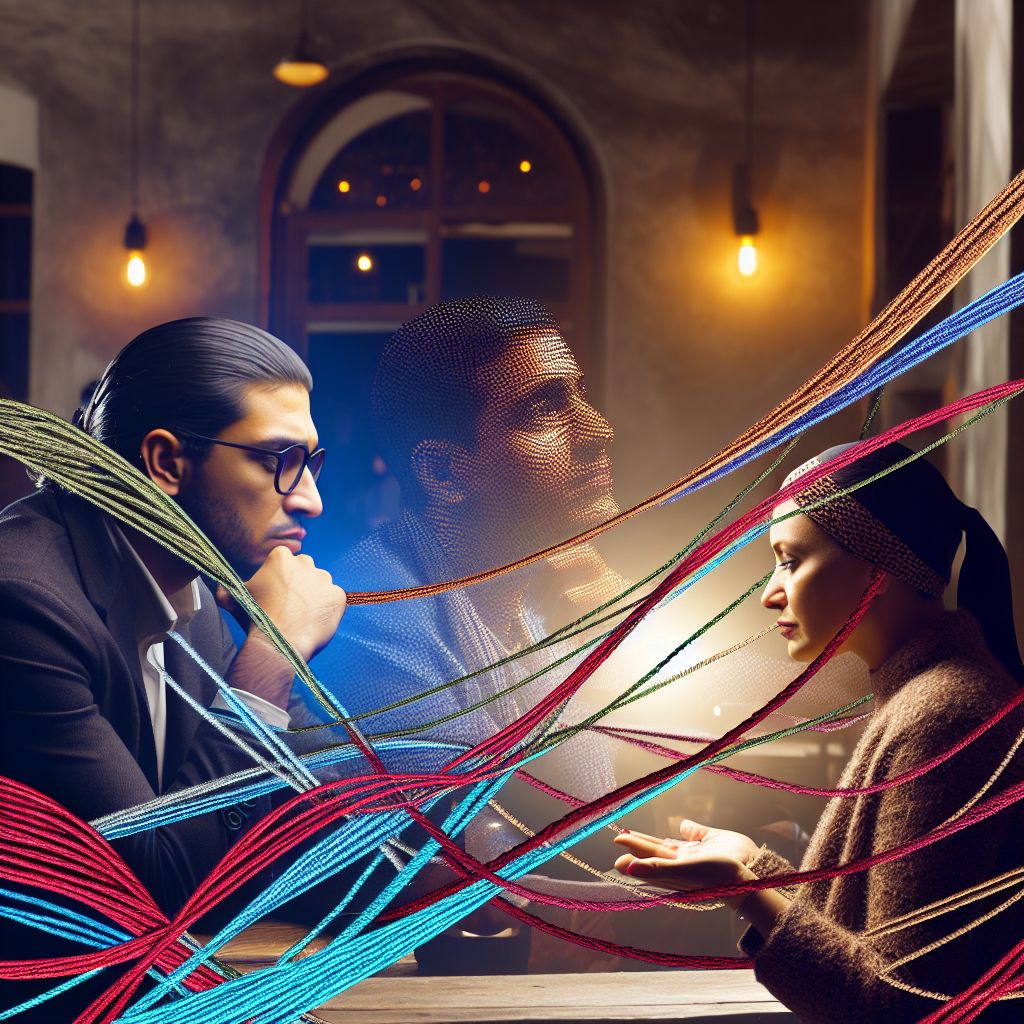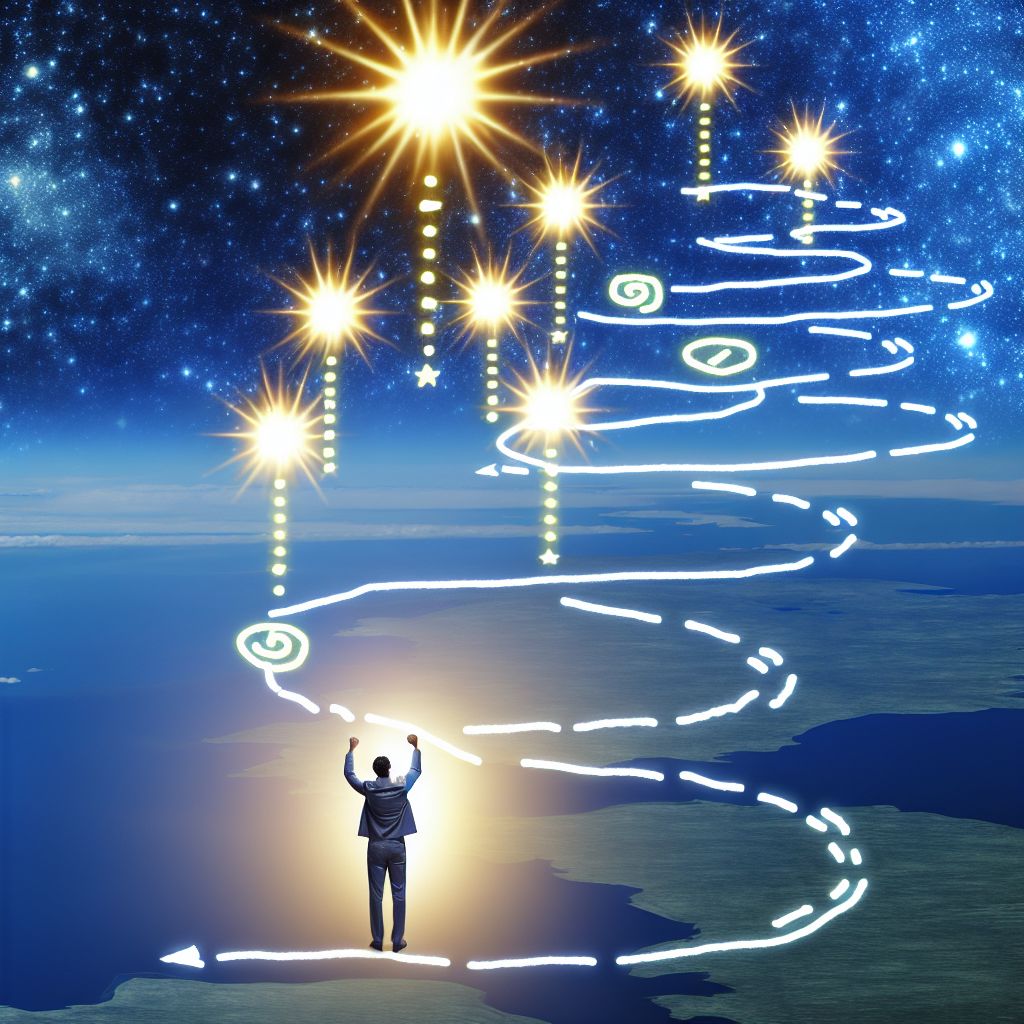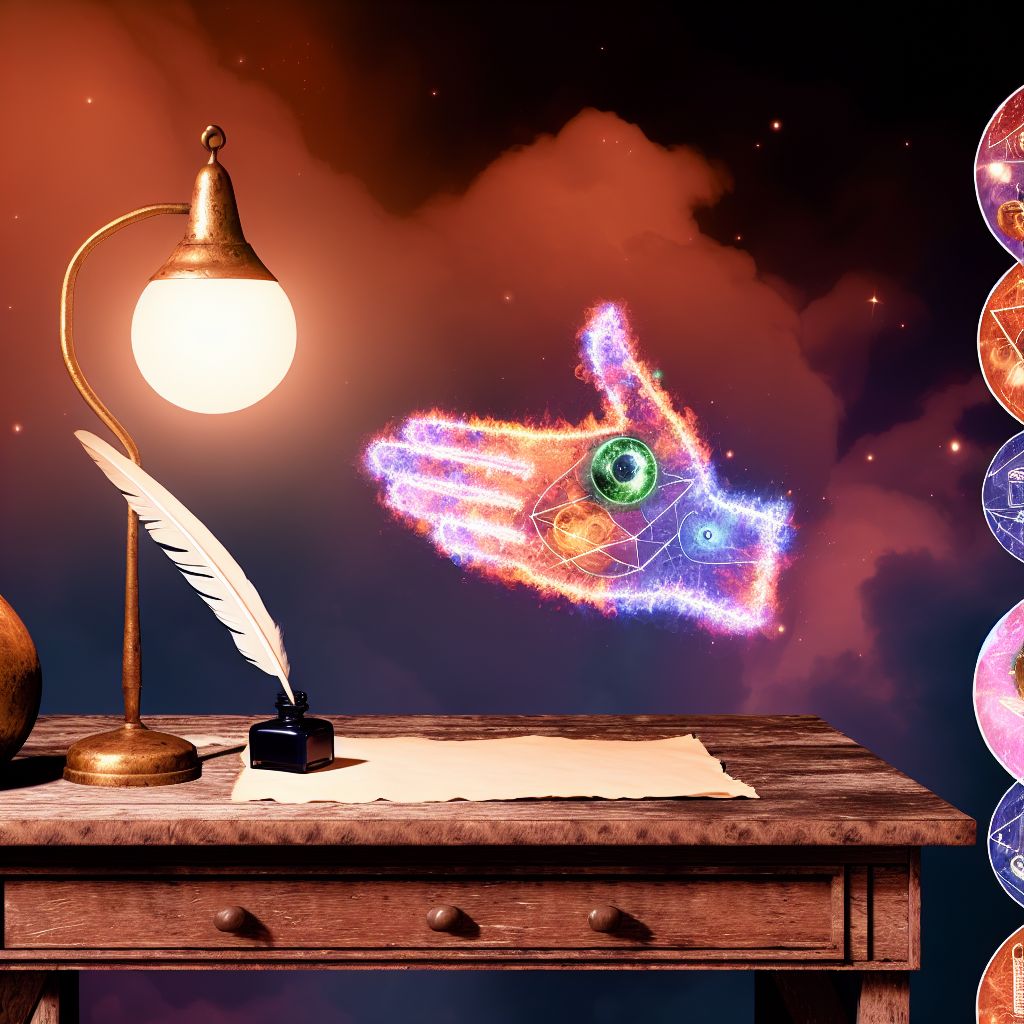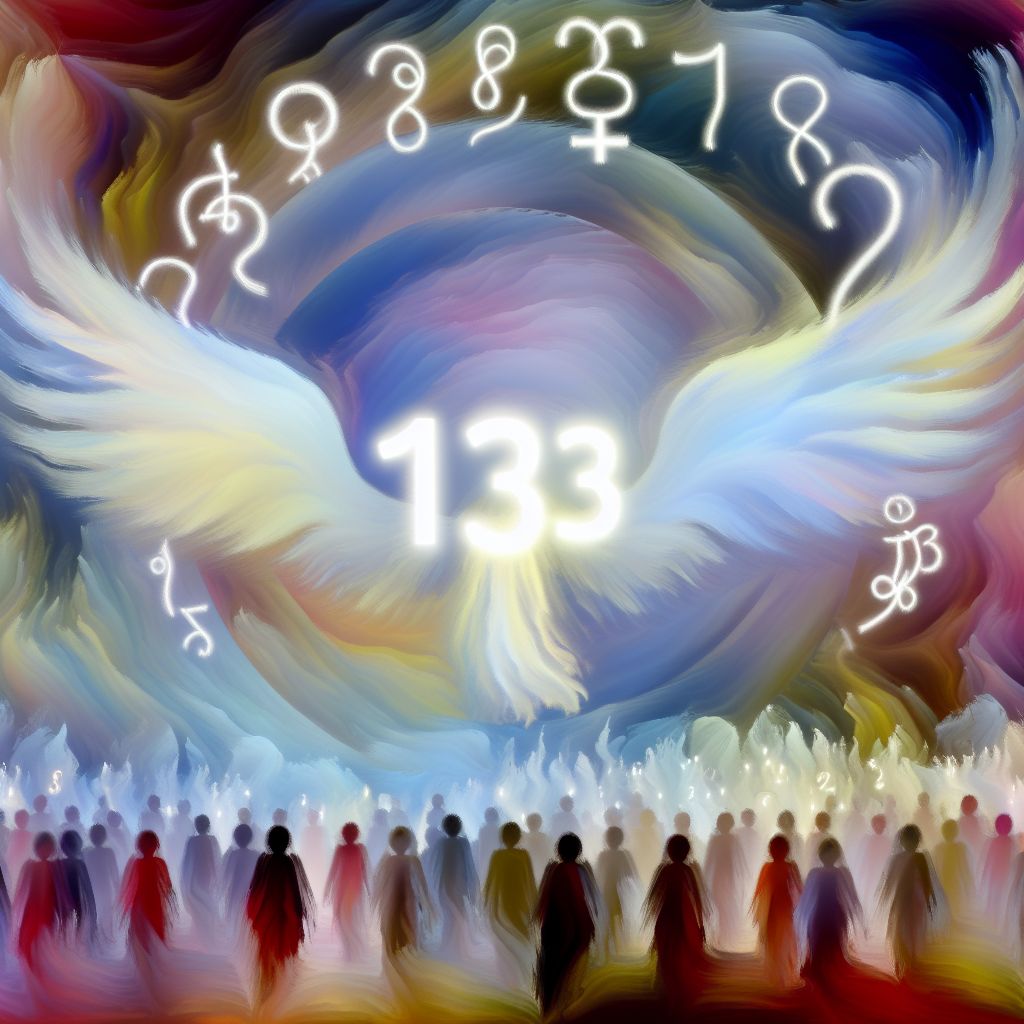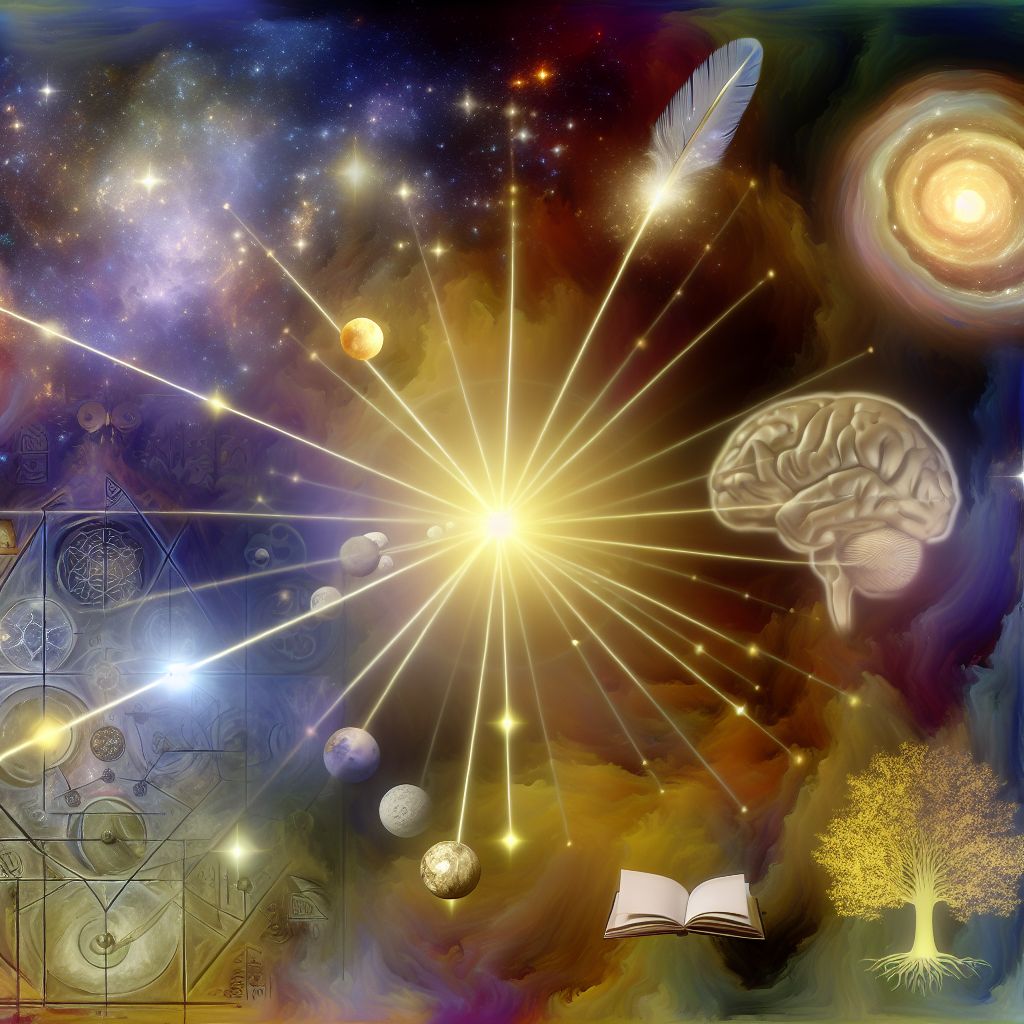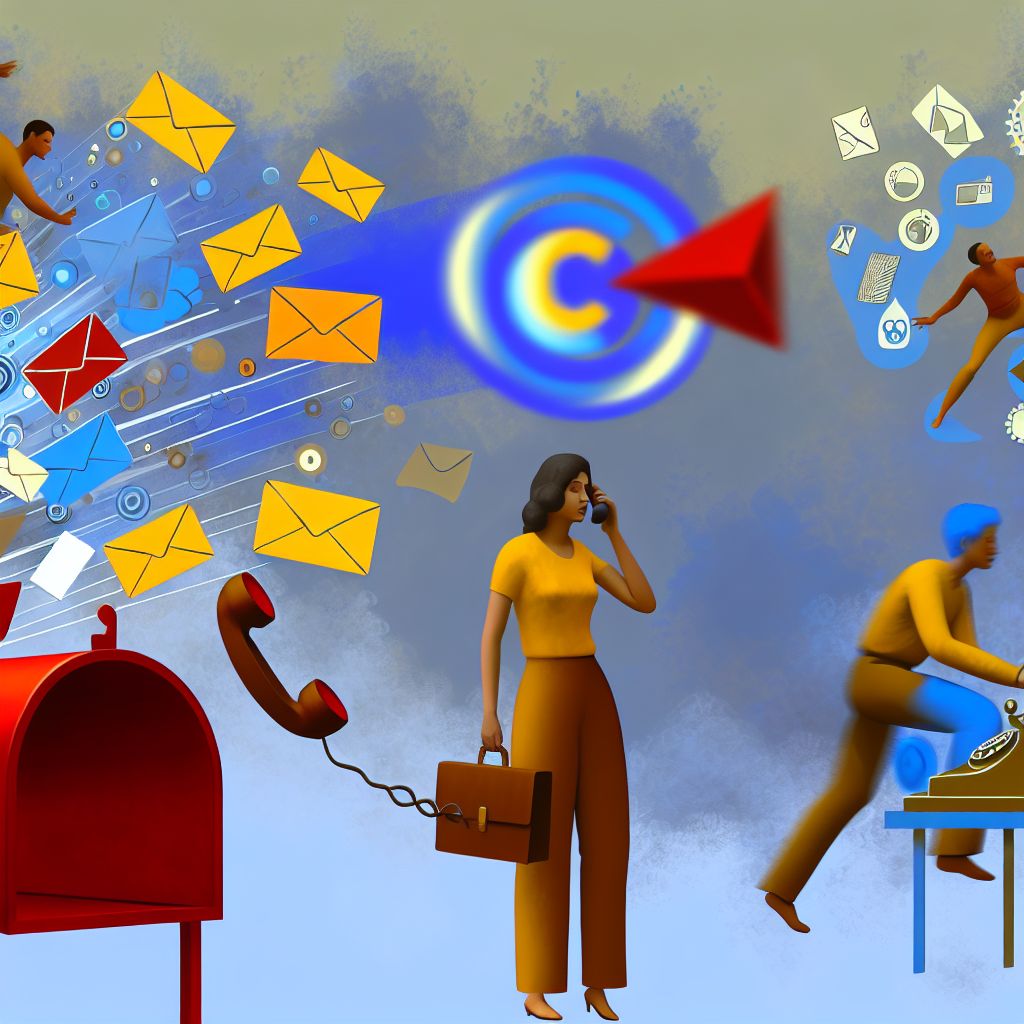Understanding the Dynamics of Digital Rejection: Insights into the Experience of Being Blocked and Blocking Others
With the rise of social media and online communication platforms, the experience of rejection has taken on a new digital dimension. In the digital realm, rejection can come in the form of being blocked or blocking someone else. This phenomenon has become increasingly prevalent, with individuals using these tools as a means of asserting control over their online interactions.
Being blocked can be a jarring experience, leaving individuals feeling excluded and rejected. It can lead to a range of emotions, from confusion and hurt to anger and frustration. The act of blocking someone can also have a significant impact on the blocker, as it allows them to assert their boundaries and maintain a sense of control over their online space.
Understanding the psychology behind blocking and being blocked can provide valuable insights into the dynamics of online relationships. It can shed light on the motivations behind these actions, as well as the potential consequences they can have on individuals' mental well-being. By exploring the factors that influence blocking and being blocked, we can gain a better understanding of how to navigate the digital landscape and foster healthier online interactions.
Navigating Social Media Blocking: Causes and Consequences
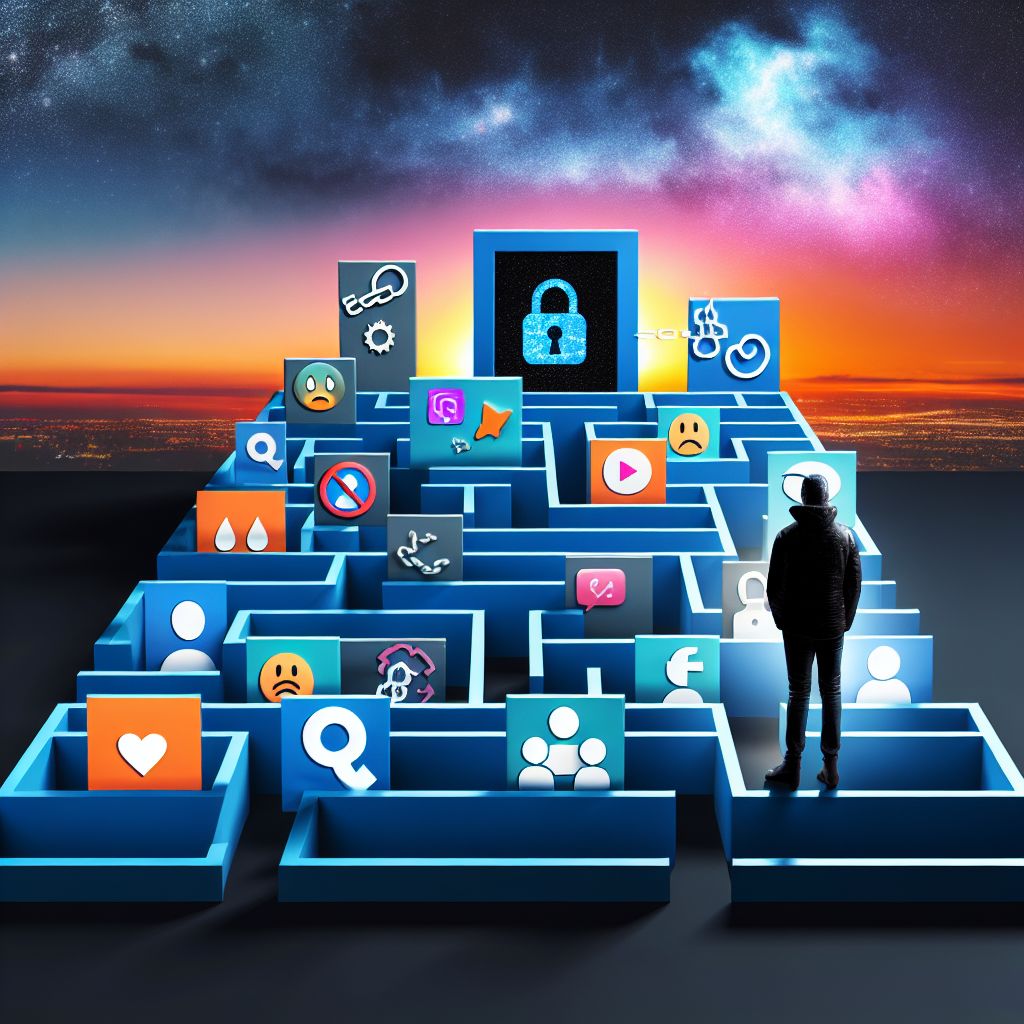
Blocking on social media platforms has become increasingly common, with users utilizing this feature to manage their online interactions. Understanding the causes and consequences of blocking can provide valuable insights into the dynamics of digital rejection and its impact on individuals and communities.
There are several reasons why individuals choose to block others on social media. One common cause is harassment or abusive behavior. When faced with persistent or offensive content, users may decide to block the source to protect themselves from further harm. This allows them to regain a sense of control over their online environment and maintain their mental well-being.
Another reason for blocking is disagreement or conflict. In the age of online discussions and debates, differing opinions can lead to heated exchanges. When conversations become toxic or unproductive, individuals may choose to block those who consistently engage in hostile or disrespectful behavior. By doing so, they can maintain a more positive and harmonious online experience.
The consequences of being blocked on social media can vary depending on the individual and the context. For some, being blocked may cause frustration or disappointment, especially if it limits their ability to communicate with a specific person or access certain content. It can also lead to feelings of rejection or social exclusion, as being blocked can be seen as a sign that one's presence or opinions are unwelcome.
Being blocked can also have implications for online reputation and relationships. In some cases, being blocked by someone with a large following or influence can damage one's credibility or social standing. It can also impact professional connections, as being blocked by a colleague or client can hinder collaboration or networking opportunities.
However, it is important to note that blocking is a personal choice and should be respected. While it can have negative consequences for some, it also serves as a tool for self-protection and boundary-setting. It allows individuals to curate their online experience and prioritize their well-being.
In conclusion, navigating social media blocking requires an understanding of its causes and consequences. By recognizing the reasons why individuals choose to block and the potential impacts of being blocked, we can foster a more empathetic and inclusive online environment.
Why do people get blocked on social media?
Blocking someone on social media is a common action taken by users to protect themselves from unwanted interactions or harmful content. There are several reasons why people may get blocked on social media:
1. Harassment and bullying:One of the main reasons for blocking someone is when they engage in harassment or bullying behavior towards others. This can include sending threatening messages, spreading rumors, or making derogatory comments.
2. Offensive or inappropriate content:If someone consistently posts offensive or inappropriate content, such as hate speech, explicit material, or graphic violence, they may be blocked by other users who find their content offensive or disturbing.
3. Spamming:Another common reason for blocking someone is if they engage in spamming activities, such as repeatedly sending unsolicited messages or posting excessive promotional content. This can be annoying and disruptive to other users, leading them to block the spammer.
4. Stalking or invasion of privacy:When someone starts stalking or invading the privacy of others on social media, it can be a serious violation of personal boundaries. If a user feels uncomfortable or unsafe due to another person's actions, they may choose to block them.
5. Disagreements and conflicts:Sometimes, people may get blocked on social media due to disagreements or conflicts with others. This can happen when discussions escalate into personal attacks or when two individuals have irreconcilable differences in opinions or beliefs.
6. Unwanted advances or harassment:If someone persistently makes unwanted advances, such as sending unsolicited romantic or sexual messages, they may be blocked by the recipient. Unwanted advances can make people feel uncomfortable or violated, leading them to take action to protect themselves.
7. Violation of platform rules:Each social media platform has its own set of rules and guidelines that users must adhere to. If someone repeatedly violates these rules, such as engaging in hate speech, impersonation, or spamming, they may face consequences, including being blocked by other users.
In conclusion, people can get blocked on social media for a variety of reasons, ranging from harassment and bullying to offensive content and privacy violations. Blocking serves as a way for users to take control over their online experience and protect themselves from negative or harmful interactions.
What does blocking do on social media?
Blocking on social media is a feature that allows users to restrict or completely cut off communication with another user. When you block someone on social media, it has several effects:
1. No more contact:Blocking someone means that they will no longer be able to send you messages, comments, or friend requests. It effectively cuts off all direct communication between you and the blocked user.
2. Invisible to each other:Blocking someone also means that you will no longer be able to see their profile, posts, or any other activity on the platform. Similarly, they will no longer be able to see your profile or any of your updates.
3. Mutual connections affected:Blocking someone may also affect your mutual connections. For example, if you block someone who is a friend of your friend, they may no longer be able to see your posts or tag you in their updates.
4. Privacy and safety:Blocking provides a sense of privacy and safety. It allows users to protect themselves from unwanted attention, harassment, or abusive behavior from others. By blocking someone, you can maintain control over your online presence and avoid interactions with individuals who may be causing you discomfort or harm.
5. Irreversible action:It is important to note that blocking is usually irreversible. Once you block someone, it can be difficult or impossible to undo the action. Before blocking someone, it is advisable to consider the consequences and whether there are alternative ways to address the issue at hand.
Overall, blocking on social media provides users with a powerful tool to manage their online interactions and maintain a positive and safe digital environment.
The Psychology Behind Blocking Someone Online
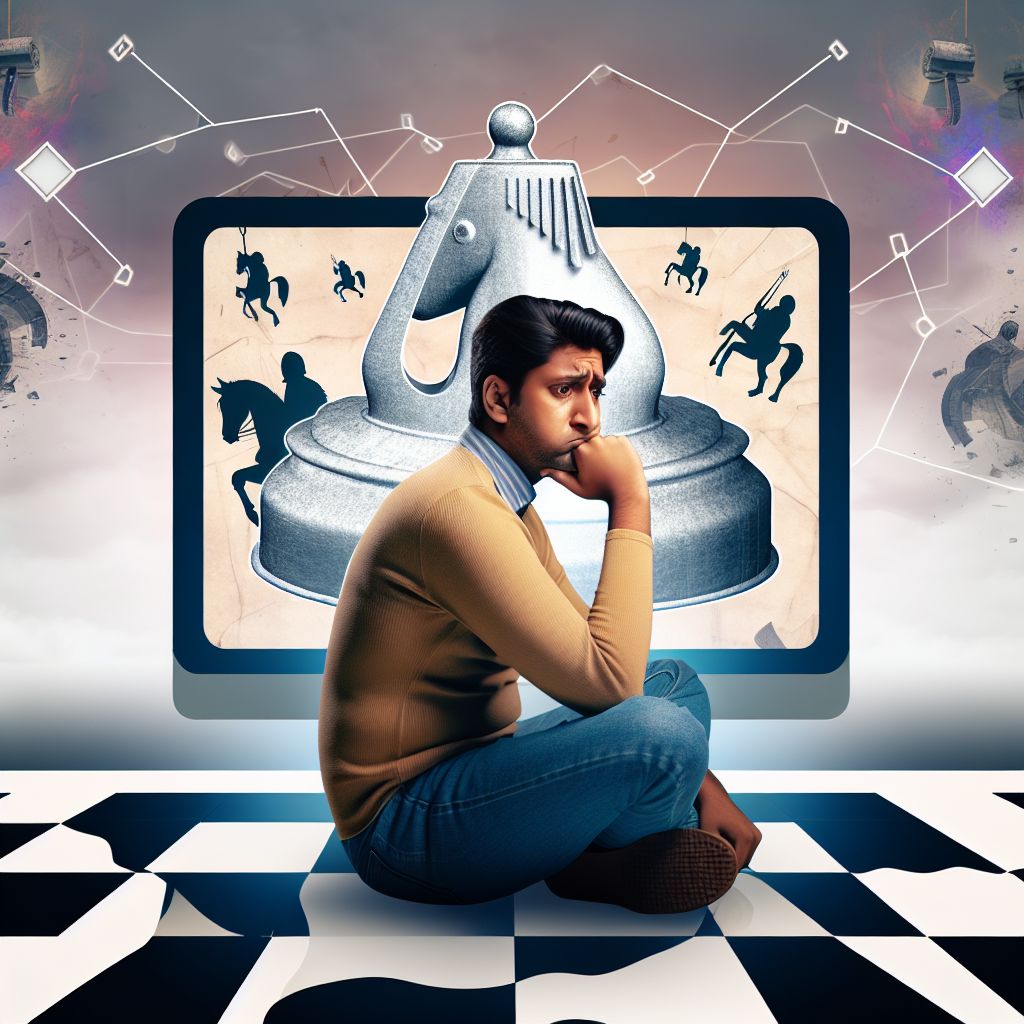
Blocking someone online has become a common practice in today's digital world. Whether it's on social media platforms or through messaging apps, blocking allows individuals to control their online space and protect themselves from unwanted interactions. But what is the psychology behind blocking someone online?
One of the main reasons behind blocking someone online is to establish boundaries and maintain a sense of control. By blocking someone, individuals are able to create a virtual barrier that prevents unwanted contact and intrusion into their personal lives. This can help them feel safer and more in control of their online interactions.
Another psychological factor that plays a role in blocking someone online is the need for self-preservation. When someone feels threatened or harassed online, blocking can serve as a defense mechanism to protect one's mental well-being. It allows individuals to distance themselves from negative experiences and regain a sense of peace and security.
Blocking someone online also has a psychological impact on the person who is being blocked. Being blocked can elicit feelings of rejection, anger, and frustration. It can be seen as a form of social exclusion, which can have negative effects on one's self-esteem and overall well-being.
Moreover, the act of blocking someone online can sometimes lead to a power dynamic. By blocking someone, individuals can exert control over the other person's access to their online presence. This can create a sense of superiority or dominance, providing a temporary boost to one's self-esteem.
However, it's important to note that blocking someone online is not always a healthy or effective coping mechanism. In some cases, it may be a sign of unresolved conflicts or an avoidance of addressing underlying issues. It's crucial for individuals to seek support and communicate their concerns in a constructive manner rather than resorting to blocking as the sole solution.
In conclusion, the psychology behind blocking someone online is complex and multifaceted. It involves establishing boundaries, protecting one's mental well-being, and sometimes asserting dominance. Understanding the psychology behind blocking can help individuals navigate their online interactions more effectively and foster healthier relationships in the digital world.
What is the psychology behind blocking someone?
Blocking someone in the digital age has become a common method of dealing with unwanted interactions or negative experiences. The psychology behind blocking someone is multifaceted and can vary from person to person, but there are some common themes that can help us understand why individuals choose to block others.
1. Self-protection:One of the main reasons people block others is to protect themselves from harm. Whether it's a toxic relationship, cyberbullying, or constant negative messages, blocking can provide a sense of safety and relief. It allows individuals to create boundaries and remove themselves from situations that may be causing them distress.
2. Control:Blocking someone gives individuals a sense of control over their digital environment. It allows them to choose who they interact with and who has access to their personal information. In a world where technology has made it easier for others to invade our privacy or bombard us with unsolicited messages, blocking can be seen as a way to regain control over one's digital space.
3. Emotional detachment:Blocking someone can also be a way for individuals to detach themselves emotionally from a person or situation. It can serve as a means of cutting off ties and moving on from a past relationship, friendship, or negative encounter. By blocking someone, individuals can distance themselves from the emotional baggage associated with that person or situation.
4. Empowerment:Blocking someone can be empowering for individuals who have previously felt powerless or victimized. It can be a way of asserting one's boundaries and taking a stand against unwanted behavior. Blocking can give individuals a sense of empowerment and control over their own digital presence.
5. Avoidance of conflict:Some individuals may choose to block others as a way to avoid conflict or confrontation. It allows them to avoid engaging in potentially heated or uncomfortable conversations. Blocking can be seen as an easier alternative to dealing with conflict and can help individuals maintain a sense of peace and well-being.
In conclusion, the psychology behind blocking someone is complex and can be influenced by various factors. It serves as a means of self-protection, control, emotional detachment, empowerment, and avoidance of conflict. Understanding the reasons behind blocking can help us navigate the digital landscape with more empathy and respect for others.
How to Respond When You're Blocked on Social Platforms
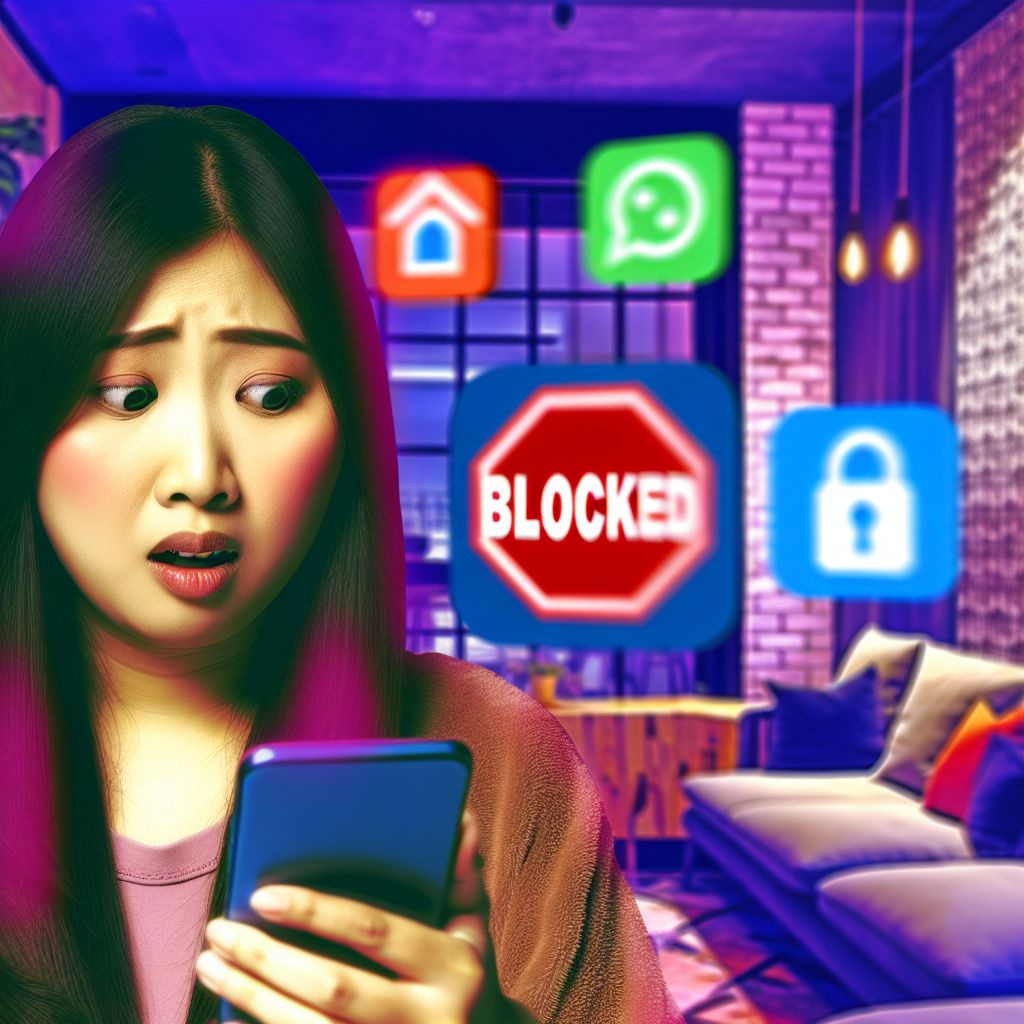
Getting blocked on social platforms can be a frustrating experience, but it's important to respond in a mature and respectful manner. Here are some steps to follow when you find yourself blocked:
- Take a step back and analyze the situation: Before reacting, it's important to understand why you were blocked. Reflect on your previous interactions with the person or account that blocked you to gain some insight into their perspective.
- Don't retaliate or escalate the situation: It's tempting to respond with anger or try to get back at the person who blocked you, but this will only worsen the situation. Keep a level head and resist the urge to retaliate.
- Reach out privately (if possible): If you have a way to contact the person who blocked you privately, consider sending a respectful message to inquire about the reason for the block. Keep in mind that they may not respond or may choose not to provide an explanation.
- Respect their decision: Even if you don't agree with being blocked, it's important to respect the person's decision. Continuing to engage with them or attempting to circumvent the block will only create further tension.
- Learn from the experience: Use the situation as an opportunity for self-reflection. Consider if there are any actions or behaviors on your part that may have contributed to the block, and think about how you can improve your online interactions moving forward.
- Move on and focus on positive interactions: Dwelling on being blocked can be unproductive and take away from the enjoyment of using social platforms. Instead, focus on engaging with others in a positive and respectful manner.
Remember, being blocked on social platforms is a common occurrence, and it's important not to take it personally. Use it as a chance to grow and learn, and maintain a positive online presence.
How do you react when someone blocks you on social media?
Being blocked on social media can elicit a range of emotions and reactions. Some people may feel hurt or offended, wondering why they were blocked and what they did wrong. Others may feel indifferent, recognizing that blocking is a personal choice and not taking it personally. Regardless of the initial reaction, it is important to understand the reasons behind the block and how to handle the situation.
One common reaction to being blocked is curiosity. People may try to find out why they were blocked by searching for clues in their past interactions or conversations. They may also try to reach out to the person who blocked them, seeking an explanation or clarification. However, it is important to remember that the decision to block someone is often a personal one, and the person who blocked may not feel obligated to provide an explanation.
Another common reaction is to feel a sense of rejection or exclusion. Being blocked can make someone feel like they are being excluded from a person's life or social circle. This feeling of rejection can lead to self-doubt and questioning one's own worth or value. It is important to remember that being blocked does not define one's worth and that there are many other people who appreciate and value them.
Some individuals may react with anger or frustration when they are blocked on social media. They may feel that the block was unjustified or unfair, and may seek revenge or retaliate in some way. However, it is important to remain calm and composed in these situations, as acting out of anger can often escalate the situation and cause further damage to relationships.
Ultimately, how one reacts to being blocked on social media depends on their own personal beliefs, values, and experiences. It is important to take the time to reflect on the situation, process one's emotions, and move forward in a positive and healthy way. This may involve reaching out to friends or loved ones for support, focusing on self-care, or simply accepting that some relationships are not meant to be.
| Pros | Cons |
|---|---|
| Opportunity for self-reflection and personal growth | Feelings of hurt, rejection, or exclusion |
| Recognizing that blocking is a personal choice | Curiosity and desire for answers |
| Learning to let go and move on | Potential for anger or retaliation |
| Focusing on positive relationships and connections | Possibility of damaging relationships further |
How do I get over being blocked on social media?
Being blocked on social media can be a hurtful and frustrating experience, but it's important to remember that everyone has the right to control their own online space. While it may be difficult, here are a few tips to help you get over being blocked:
1. Reflect on the situation
Take some time to reflect on why you were blocked. Was it a result of something you said or did? Understanding the reason behind the block can help you learn from the experience and avoid making similar mistakes in the future.
2. Respect their boundaries
Respect the person's decision to block you and their boundaries. It's important to remember that they have the right to choose who they interact with online. Trying to contact them through other means or creating new accounts to bypass the block will only worsen the situation and potentially lead to further consequences.
3. Focus on building positive connections
Instead of dwelling on the block, focus on building positive connections with others. Engage in conversations, share your thoughts and interests, and participate in communities that align with your values. Surrounding yourself with supportive and like-minded individuals can help you move on from the negative experience.
4. Learn and grow
Use the experience of being blocked as an opportunity for personal growth. Reflect on your online behavior and consider if there are any changes you can make to improve your interactions with others. Learning from the situation can help you become a better digital citizen and foster healthier relationships online.
5. Seek support if needed
If you're having difficulty processing the emotions associated with being blocked, don't hesitate to seek support from friends, family, or a therapist. Talking about your feelings and gaining perspective can help you navigate through the situation and move forward.
Remember, being blocked on social media is not the end of the world. It's a chance for self-reflection, growth, and the opportunity to foster healthier online relationships.
How do you answer why you blocked me?
Being asked why you blocked someone can be an uncomfortable situation, especially if you want to maintain a positive relationship. Here are a few tips on how to answer this question:
- Be honest:It's best to be straightforward and honest about why you blocked someone. Avoid making up excuses or trying to sugarcoat the situation.
- Explain your reasons:Clearly communicate the reasons that led to your decision to block someone. Whether it's due to inappropriate behavior, harassment, or personal boundaries, explain why their actions or words crossed a line for you.
- Express your feelings:Share how their actions made you feel and the impact it had on you. Use 'I' statements to avoid sounding accusatory. For example, say, 'I felt disrespected when...' instead of 'You disrespected me when...'.
- Set boundaries:If you blocked someone to protect yourself or maintain your mental well-being, it's important to communicate your boundaries. Let them know what behavior is unacceptable to you and what you expect from them moving forward.
- Offer a chance for resolution:If you're open to resolving the issue, express your willingness to have a constructive conversation or seek mediation. However, make it clear that this is only possible if both parties are willing to listen and respect each other's perspectives.
Remember, blocking someone is a personal decision, and you have the right to protect yourself and create a healthy online environment. It's crucial to prioritize your well-being and set boundaries when necessary.
Unblocking and Moving Forward: What It Really Means
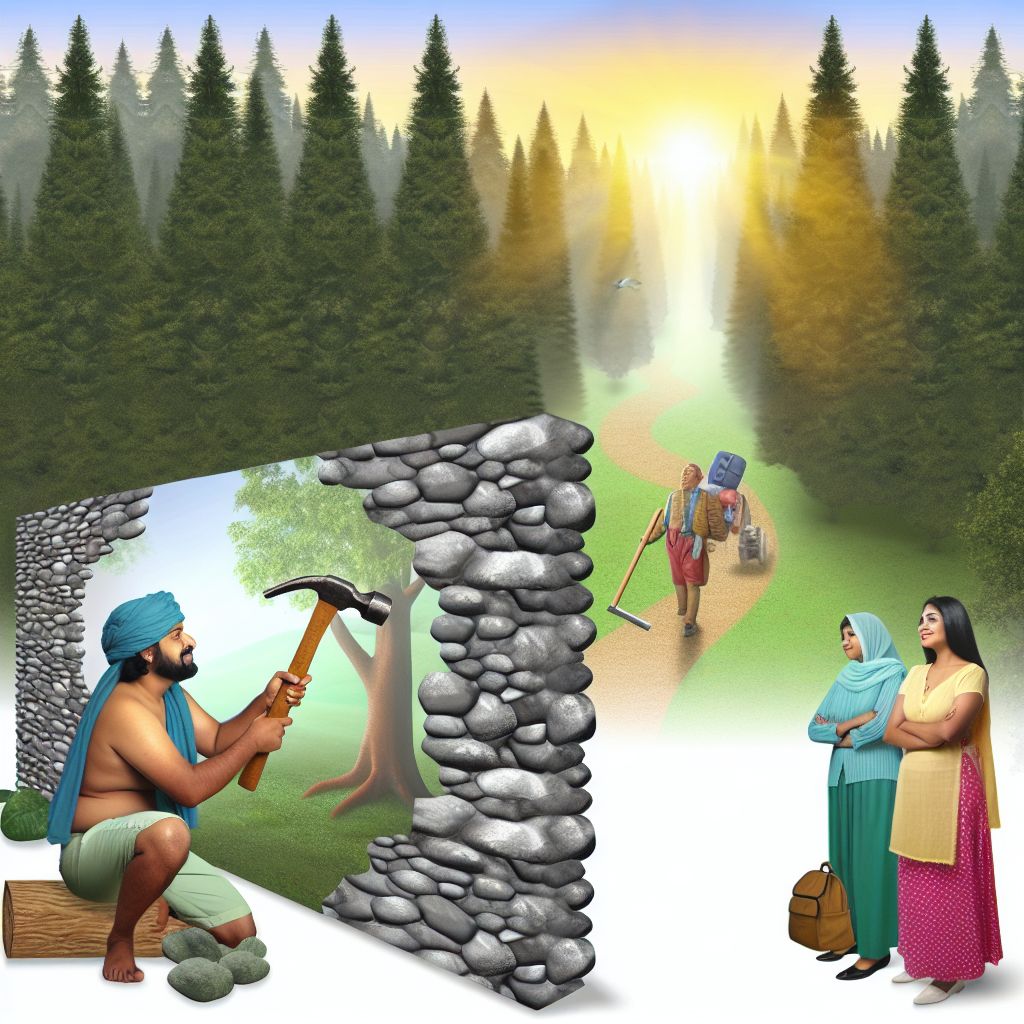
Being blocked in the digital world can be a frustrating experience. Whether it's on social media, email, or messaging platforms, the act of being blocked can feel like a personal rejection. However, it's important to remember that unblocking and moving forward is not about trying to regain access to someone's digital space, but rather about focusing on personal growth and self-improvement.
Unblocking and moving forward means recognizing the boundaries set by others and respecting their decision to block you. It's about taking a step back and reflecting on the actions or behaviors that led to the block in the first place. This self-reflection is crucial in understanding how our actions impact others and can help us grow as individuals.
Unblocking and moving forward also involves learning from the experience and making changes to prevent similar situations in the future. It's about being accountable for our actions and recognizing the importance of empathy and respect in our interactions with others online.
Additionally, unblocking and moving forward means focusing on personal growth and finding healthier ways to communicate and engage with others. It's about building positive relationships and fostering a sense of community rather than seeking validation or attention through negative online interactions.
Ultimately, unblocking and moving forward is a process that requires self-reflection, growth, and a commitment to positive change. It's about recognizing our own flaws and working towards becoming better digital citizens. By embracing this mindset, we can not only move past being blocked, but also contribute to a more positive and inclusive online environment for everyone.
When someone unblocks you what does it mean?
Being unblocked by someone can have different meanings depending on the context of the relationship and the reasons for the initial block. Here are a few possible interpretations:
1. Reconciliation:When someone unblocks you, it could indicate that they are willing to reconcile and move past any issues or disagreements that led to the block. It may signify a desire to rebuild the relationship and start fresh.
2. Forgiveness:Unblocking can also be a sign of forgiveness. It suggests that the person who blocked you has chosen to let go of any resentment or anger they held towards you and is willing to give you a second chance.
3. Curiosity or Interest:In some cases, unblocking may simply indicate that the person is curious about your recent activities or is interested in reconnecting on a surface level. It doesn't necessarily imply a desire for deeper communication or rekindling the relationship.
4. Moving On:On the other hand, unblocking could also mean that the person has moved on from whatever caused the block in the first place. They may no longer be affected by the past events or have any desire to maintain a connection with you.
5. Accidental Unblock:Sometimes, people may unintentionally unblock someone due to technical glitches or by mistake. In such cases, the unblocking may hold no particular meaning and should be taken with caution.
It's important to remember that unblocking doesn't automatically imply a complete resolution or a return to the previous state of the relationship. It's necessary to approach the situation with open communication and respect for each other's boundaries to truly understand the intentions behind the unblocking.
